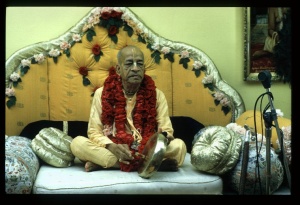CC Madhya 1.279: Difference between revisions
No edit summary |
(Vanibot #0054 edit - transform synonyms into clickable links, which search similar occurrences) |
||
| Line 17: | Line 17: | ||
<div class="synonyms"> | <div class="synonyms"> | ||
''ke'' | ''[//vanipedia.org/wiki/Special:VaniSearch?s=ke&tab=syno_o&ds=1 ke]'' — who; ''[//vanipedia.org/wiki/Special:VaniSearch?s=śikhāla&tab=syno_o&ds=1 śikhāla]'' — taught; ''[//vanipedia.org/wiki/Special:VaniSearch?s=ei&tab=syno_o&ds=1 ei]'' — these; ''[//vanipedia.org/wiki/Special:VaniSearch?s=loke&tab=syno_o&ds=1 loke]'' — people; ''[//vanipedia.org/wiki/Special:VaniSearch?s=kahe&tab=syno_o&ds=1 kahe]'' — they say; ''[//vanipedia.org/wiki/Special:VaniSearch?s=kon&tab=syno_o&ds=1 kon]'' — what; ''[//vanipedia.org/wiki/Special:VaniSearch?s=bāta&tab=syno_o&ds=1 bāta]'' — topics; ''[//vanipedia.org/wiki/Special:VaniSearch?s=ihā&tab=syno_o&ds=1 ihā]'' — of them; ''[//vanipedia.org/wiki/Special:VaniSearch?s=sabāra&tab=syno_o&ds=1 sabāra]'' — of all; ''[//vanipedia.org/wiki/Special:VaniSearch?s=mukha&tab=syno_o&ds=1 mukha]'' — the mouths; ''[//vanipedia.org/wiki/Special:VaniSearch?s=ḍhāka&tab=syno_o&ds=1 ḍhāka]'' — just cover; ''[//vanipedia.org/wiki/Special:VaniSearch?s=diyā&tab=syno_o&ds=1 diyā]'' — with; ''[//vanipedia.org/wiki/Special:VaniSearch?s=nija&tab=syno_o&ds=1 nija]'' — Your own; ''[//vanipedia.org/wiki/Special:VaniSearch?s=hāta&tab=syno_o&ds=1 hāta]'' — hand. | ||
</div> | </div> | ||
Latest revision as of 21:13, 19 February 2024
Śrī Caitanya-caritāmṛta - Madhya-līlā - Chapter 1: The Later Pastimes of Lord Śrī Caitanya Mahāprabhu

His Divine Grace
A.C. Bhaktivedanta Swami Prabhupada
A.C. Bhaktivedanta Swami Prabhupada
TEXT 279
- ke śikhāla ei loke, kahe kon bāta
- ihā-sabāra mukha ḍhāka diyā nija hāta
SYNONYMS
ke — who; śikhāla — taught; ei — these; loke — people; kahe — they say; kon — what; bāta — topics; ihā — of them; sabāra — of all; mukha — the mouths; ḍhāka — just cover; diyā — with; nija — Your own; hāta — hand.
TRANSLATION
Śrīvāsa Ṭhākura continued, “Who has taught these people? What are they saying? Now You can cover their mouths with Your own hand.